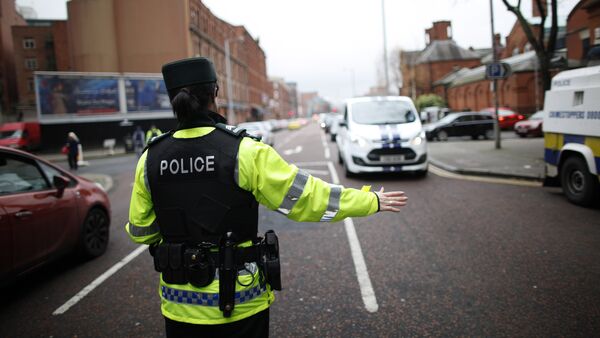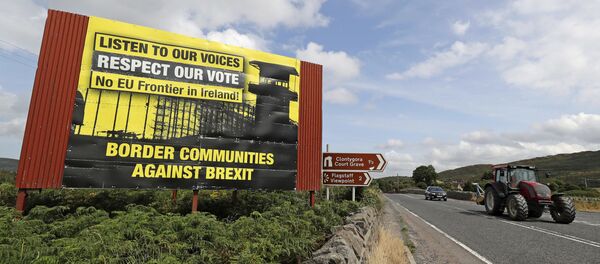The UK's MI5 intelligence agency has deployed more than 700 spies in Belfast as part of a massive anti-terrorist operation in the area; it comes amid concerns that the so-called New Irish Republican Army (IRA) may capitalise on the possible return of a hard Irish border after Brexit so as to fuel a fresh conflict, the Daily Mail reports.
The newspaper cited Brian Kenna, a former IRA prisoner and chairman of the Revolutionary Republican Party Saoradh, as saying that "Britain still rules the six counties of [Northern] Ireland and this is going to lead to renewed conflict".
READ MORE: Northern Ireland's Parties to Impact Irish Hard Border, Not Hard Brexit — Prof
In this vein, Kenna was echoed by Patrick Carty, one of Saoradh's leaders, who specifically singled out Brexit's potential, which he warned may "break up the British state".
"With the inevitable infrastructure of a hard border imminent, this will drive home to the Irish people the partition of our country […] and as history teaches us, it will inevitably stoke the fires of resistance against British rule in Ireland", Carty said earlier this month.
MI5's focus on New IRA comes after the group's hardliners staged a car bomb blast outside a courthouse in Londonderry on 19 January. The Police Service of Northern Ireland (PSNI) reported that no one was injured in the explosion and that an investigation has been launched.
READ MORE: UK Labor Leader Corbyn Warns Against Brexit With Hard Irish Border
PSNI acting chief constable Barbara Gray told The Times that police have found arms and explosives and that the New IRA still have the capability to conduct more attacks. According to her, "the threat is nothing like we experienced in the past, but these people are intent on violence and they are not going away".
The newspaper also cited an unnamed counterterrorism source as saying that "there is a reason MI5 has about 20 percent of its total strength in Belfast and last weekend was a timely reminder of that reason".
The boundary between the Republic of Ireland and Northern Ireland remains an issue at Brexit talks amid concerns that the UK's exit from the EU might imperil the free movement of goods and workers between Ireland and the Northern Irish counties of the United Kingdom, culminating in the return of a "hard" border between them.



